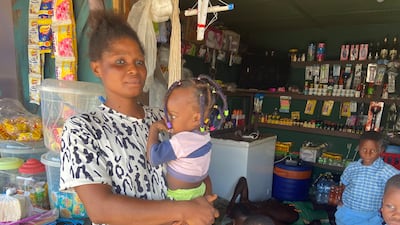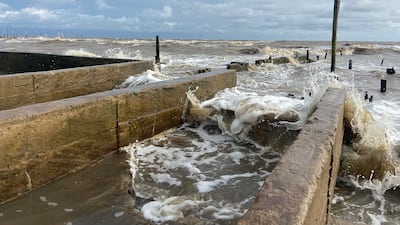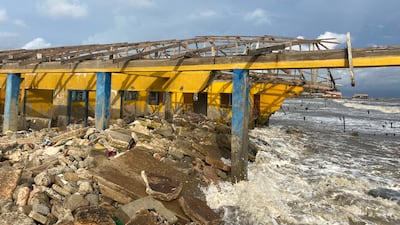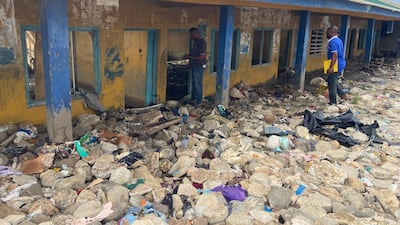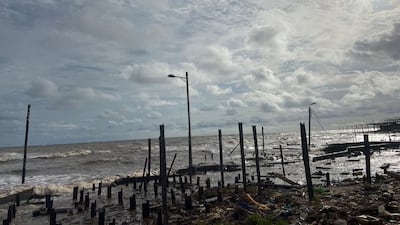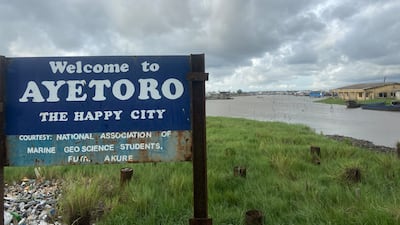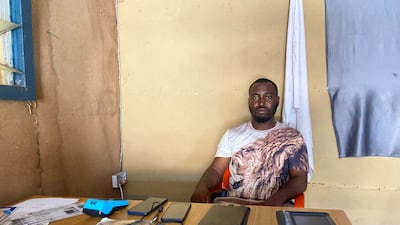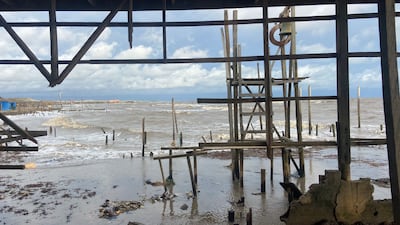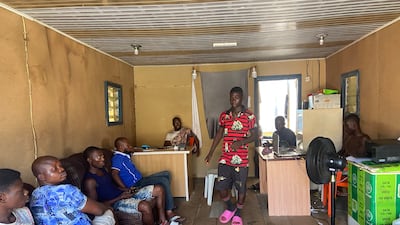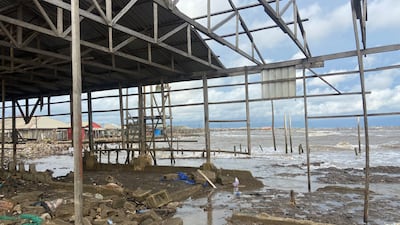In the early hours of June 14, 2021, Alebiosu Adeleye was awoken by a loud boom.
Startled from sleep, the 32-year-old pushed open his bedroom window. That was when he saw the roaring wall of water rushing towards his town of Ayetoro.
Mr Adeleye rushed to his wife and two children, helping them jump out of the window as the storm grew more violent and water gushed through their rooms. They dove into the waves raging through their home and swam to safety.
Later in the morning, he found out his shop – where he ran a cyber cafe and printing business – had also been swept into the sea.
“I lost everything I had worked my life for that day. A whole building went under the sea and my shop, including everything in it, fell to the sea,” he told The National before stopping abruptly, as if trying to catch his breath.
It wasn’t the first time. And it wouldn’t be the last.
Not-so happy city
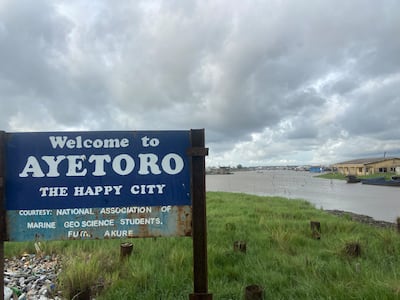
Founded in 1947 by Apostolic missionaries, Ayetoro is situated along the Atlantic coast in Ondo, south-west Nigeria. It grew a reputation for its communal life and advanced technology in fishing, transport and industry such as carpentry and furniture, shoe making, bakery and textiles.
However, the community, known locally as “Happy City”, has been ravaged by recurrent sea surges that have claimed more than 50 per cent of the land. The town is on the front line of the climate fight, seeing the impact of rising sea levels first-hand – more than 500 buildings and schools have been damaged in the past 20 years in what have now become annual sea incursions.
Left at the mercy of the ocean, the economy of the community continues to nosedive as business owners like Mr Adeleye bear the brunt.
Africa has contributed very little to climate-warming greenhouse gas emissions, but its residents are among the most vulnerable to the fallout.
Nigeria, the continent’s most populous nation, stretching from the southern fringe of the Sahara to the Gulf of Guinea, is particularly vulnerable to the effects of climate change, as the desert encroaches on its northern pastures, rainfall erodes farmland in its eastern Niger Delta and the Atlantic Ocean continues to consume its southern coast.
“It is disturbing. Because of the sea that keeps coming and sweeping everything away, we can no longer make plans for long-term purposes,” Mr Adeleye said.
“When you think of what could happen next and having to lose a whole building and businesses, and starting all over again. It takes time and it takes its own toll.”

Before the incursion, business was booming. Today, he runs a makeshift shop with money he saved for his studies. He barely makes enough to take care of himself.
“Sometimes, I made up to 10,000 naira ($21) daily, but now it has drastically reduced because people don’t have access to my office like before and the economy of the community has also been tremendously affected,” he says, looking out to sea.
“Some of our customers have moved and relocated for their safety.
“It is moving closer. And that is just within two years. Each time I come to work, I look at my office and I look at the sea; If another incursion should happen, I would be finished.”
The global economy could lose 10 per cent of its total value by 2050 due to climate change, according to research by the Swiss Re Institute.
Developing countries such as Nigeria will take the biggest hit as available data shows that climate change would reduce gross domestic product per capita by about 15 per cent by 2050 in countries across East and West Africa if measures are not taken.
“Communities and entrepreneurs facing the growing intensity of climate shocks that compound one after another end up losing their assets – tools, machinery, property – or selling them to get by,” says Clare Shakya, climate change director at the London-based International Institute for Environment and Development.
“It becomes harder to recover and restart productive economic activity. It can mean people, businesses and even governments get further and further into debt, with implications for the wider economy.”
She adds that affected communities need to be part of the conversation to move away from fossil fuels and improve the lives of those hit by climate change.
Murtala Abdullah, a climate security analyst, shares similar views. He believes the disruption of the economy of these coastal areas does not stay within the coastline.
“In coastal communities like Ayetoro, sea incursions lead to loss of land which means that locals cannot go fishing or lose their businesses, and that has an impact on poverty levels and productivity,” he says.
“This network affects the broader economy of the country in terms of reduction in income level, businesses shutting down or food insecurity. And in Nigeria, with linkage from other factors, it makes the situation bad.”
Debt cycle
In 2006, the community had about 30,000 residents, but the population has declined to about 5,000 as people move out of their ancestral homes in droves.
Two years ago, a sea surge swept away Joseph Francis's house, but the father-of-three picked himself up to build another from his small earnings as a carpenter.
In a similar incursion in April this year, both that building and his wife’s provision store fell into the sea. They have since moved to Ugbo Nla, a neighbouring upland town, to try to start a new life.
“The community moved us to another safer location, but we’re not safe when the sea came again last month,” Mr Francis says.
“I’m currently staying with my relatives in Ugbo Nla to start over again. The sea won’t stop taking from us. We had to leave.”
But like Mr Adeleye, there are those desperately clinging to their homes.
Maria Ajijo, 33, is one of those who is choosing to stay and fight the tide, despite dwindling custom for her business.
She owned a flourishing provision store along Broad Street, a popular one-way road that ran through the community, a go-to for residents until one Sunday morning in October 2021, when the Atlantic Ocean swept through the community and submerged the street – including Ms Ajijo's store.
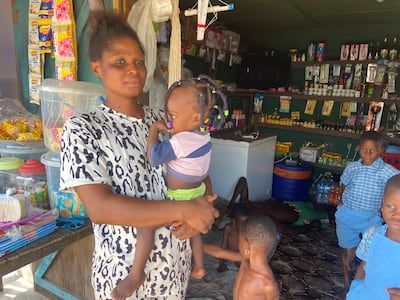
“The destruction plunged me into a debt that I’m still paying. I couldn’t even afford to pay my kids' school fees at some point,” Ms Ajijo said, her voice breaking.
“I lost everything and starting all over again has been difficult. It has been hard.”
